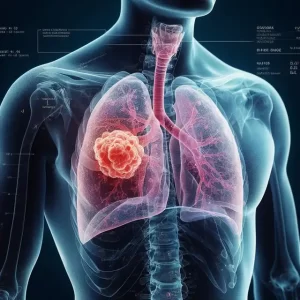Rare variants related to blood pressure regulation
Rare variants related to blood pressure regulation
Rare variants related to blood pressure regulation. New breakthrough! Nature: A meta-analysis of millions of people finds rare mutations related to blood pressure regulation.
Worldwide, elevated blood pressure is a major risk factor for cardiovascular disease (CVD) and related complications. It is estimated that the complications of cardiovascular disease can cause about 10.7 million premature deaths each year, which is an important factor threatening human life.
Previous studies have shown that genome-wide association studies (GWAS) and exome sequence association studies (EAWAS) have determined that more than 1,000 bp-related single nucleotide variants (SNVs) are associated with increased blood pressure, showing its complexity , Heritable, polygenic characteristics. Most of the common SNVs have little effect on blood pressure. However, most reported non-coding SNVs are also limited in explaining specific causal genes due to linkage disequilibrium (LD) between common mutations.
On November 23, 2020, researchers from the University of Cambridge Joanna M. M. Howson, Queen Mary University of London Patricia B. Munroe and other researchers jointly published the title “Discovery of rare variants associated with blood” in the international academic journal Nature-Genetics. Pressure regulation through meta-analysis of 1.3 million individuals” article, through meta-analysis of 1.3 million individuals, found rare variations related to blood pressure regulation.

DOI: 10.1038/s41588-020-00713-x
Based on previous research, the author performed EWAS and RV-GWAS (RV-GWAS) analysis of possible genotypes of SNV to identify the characteristics of blood pressure, hypertension (HTN), systolic blood pressure (SBP), and diastolic blood pressure (DBP) Univariate analysis and gene-based detection methods of related mutations such as pulse pressure (PP).

Experimental flowchart
The results showed that in a meta-analysis of up to 1.3 million participants, researchers found 106 new genomic regions related to blood pressure and 87 rare (suballelic frequency ≤0.01) variant BP associations, 32 of which are located in the new The BP-related loci and 55 are independent BP-related single nucleotide variants in the known BP-related regions. In addition, the average effect of rare variants (encoding rate of 44%) is about 8 times that of common variants, which indicates the existence of potential candidate causal genes at new and known loci (such as GATA5 and PLCB3).

New BP correlation (a: Fuji map of genome significant BP-related SNV in EWAS and RV-GWAS, b: Venn diagram, showing the overlap of 106 new BP loci in analyzing BP features, c: VEP pair known and All the identified rare variants in the new region are functionally annotated; d: the comparison chart of MAF and effect estimation in the conversion of BP-related SNV)
In addition, BP-related variants (including rare and common) are enriched in active chromatin regions of fetal tissues, which may link fetal development to BP regulation during growth. When using Mendelian’s multivariate random study to analyze and evaluate the causal relationship between BP and stroke, the results show that systolic blood pressure has the strongest influence on all types of cerebrovascular diseases, and the most profound influence on large arterial stroke. Blood pressure has the weakest effect on cardioembolic stroke (CE), which may reflect that atrial fibrillation plays a greater role in the risk of CE than blood pressure.

Full phenotypic binding of the new BP site
This study demonstrated the role of rare variant analysis in identifying candidate genes, and the results highlighted potential therapeutic targets.
(source:internet)
Disclaimer of medicaltrend.org



